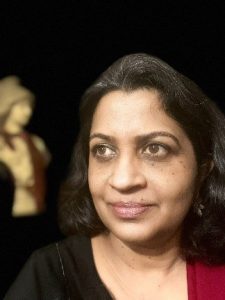
By Natasha Ramarathnam
Log onto X (formerly called Twitter) or Instagram, and you find scores of accounts abusing assertive and articulate women while declaring that “feminism is cancer”. Turn on the TV, and there are prime time debates that without even a proper discussion conclude that all Indian men are victims of women who misuse the legal system for their benefit. There are forwards on WhatsApp and shares on Facebook which misquote statistics to demand that the laws which were created to protect women from social evils be scrapped and replaced by “gender neutral” laws. Clearly, this systemic backlash is because while society has worked towards empowering women, it has failed in enabling men to live harmoniously with empowered women. There are, however, a few male authors who write with great sensitively about a society which is not yet ready to accept gender equity either at home or outside.
Atharva Pandit’s ‘Hurda’ is based on a real life crime where three sisters disappeared, only to be found dead a few days later in a village well- till today nobody knows if it was an accident, suicide or murder. By constantly referring to the “green top” that one of the girls was dressed in, the author subtly points out to how by asking by “What was she Wearing?”, the blame for sexual assault is often shifted onto the victim who was “Asking for It.” The book also has multiple examples of how men indulge in sexual harassment and even sexual abuse, while either remaining oblivious to it, or by continuing to justify their action.
In Venkat, the narrator of ‘Sakina’s Kiss’, Vivek Shanbhag has created an extremely nuanced character- one who thinks he is “progressive”, but who in fact not only contributes to the unequal distribution of labour at home, but also weaponizes the vulnerability of women to feel good about himself. He constantly talks about how he knows how to brew a cup of tea, but when he sees his wife cooking all the meals, instead of pitching in (or at least appreciating the work she does), he suggests she get a cook. This is the kind of passive aggressive behaviour that is common in many households, but which is largely invisible men. I amazed that male author was able to create a character who is so nuanced in his misogyny. Venkat isn’t the only such character in the book- there is a self-professed “revolutionary” journalist who encourages a female journalist to travel into the hinterlands without an escort, but expects his beautiful wife to stay home to serve him meals at exactly the right temperature.
Nisha, one of the two narrators of Prayaag Akbar’s ‘Mother India’, is one of the most nuanced female characters I have met in recent times. She is a small town girl working in an upmarket retail establishment in a big city, who gets into a relationship with a man who doesn’t reciprocate her feelings. It would have been very convenient to develop her character around stereotypical lines, but the author has taken care to create a woman who intelligent, resilient, and independent, in addition to being very attractive. In a society where women are often accused of filing “fake rape cases” against men to coerce them into marriage, Nisha’s reaction, while entirely believable, was not what one would normally expect. The other female characters, similarly, are well etched and resist being pigeonholed.
When male authors like Shanbhag, Akbar and Pandit successfully capture the female perspective, it provides how, however faint, that eventually we will be able to move towards being a less misogynistic society.
Natasha Ramarathnam is a dog lover, a tree hugger, a coffee addict and a book dragon. A development sector professional by training and experience, she now spends most of her time working towards gender equity and positive climate change. Her greatest achievement, according to her, has been to bring up two feminist sons.

Join our newsletter to receive updates